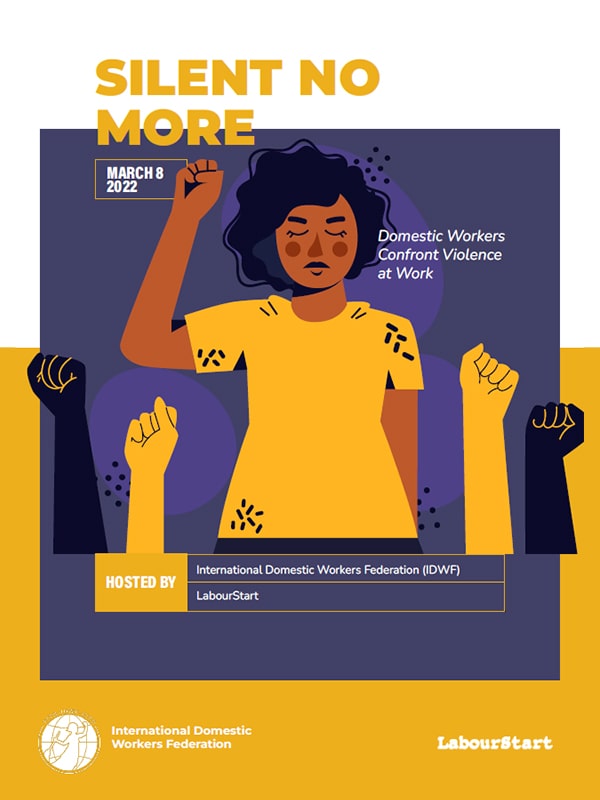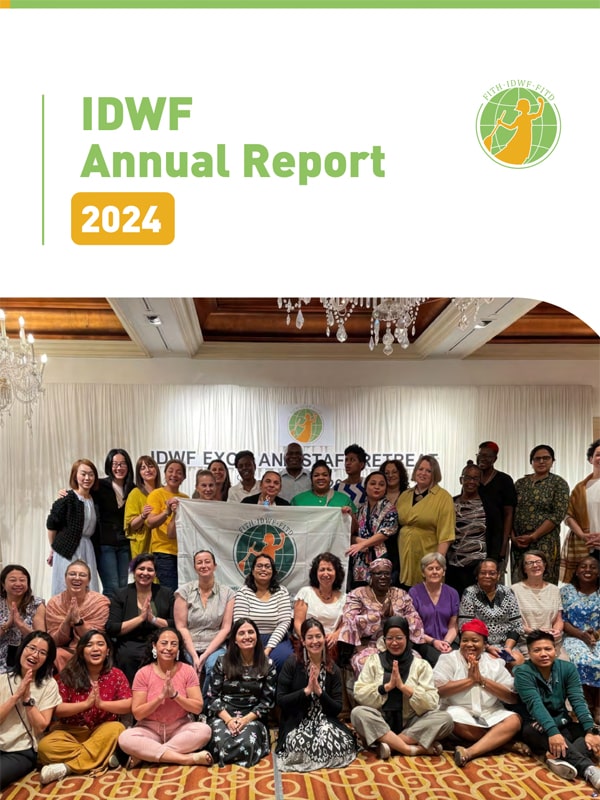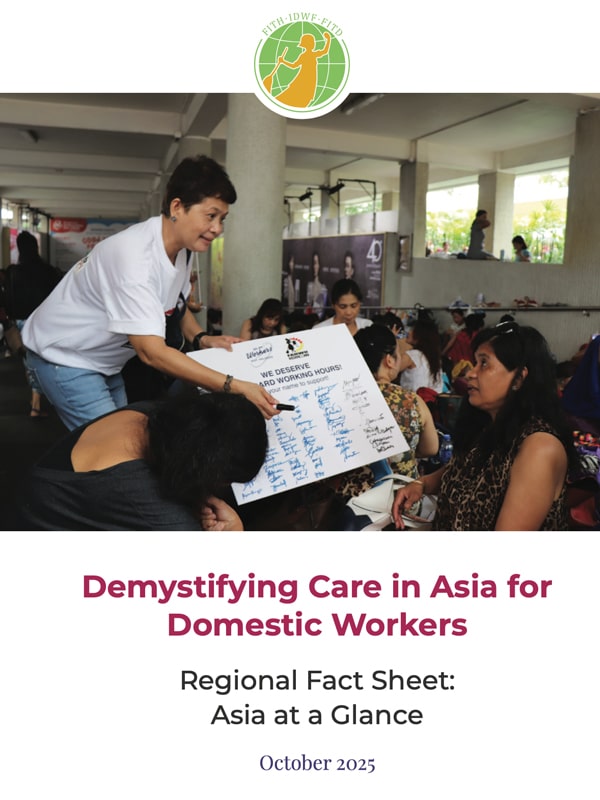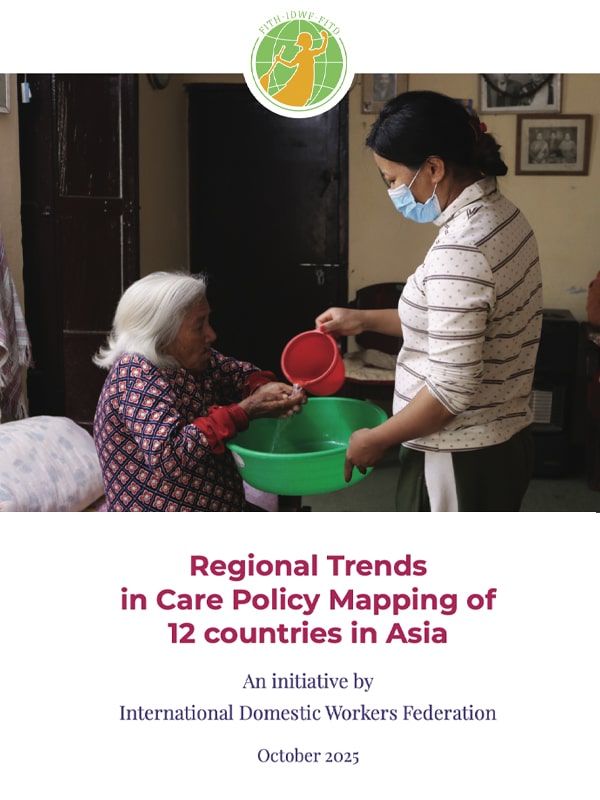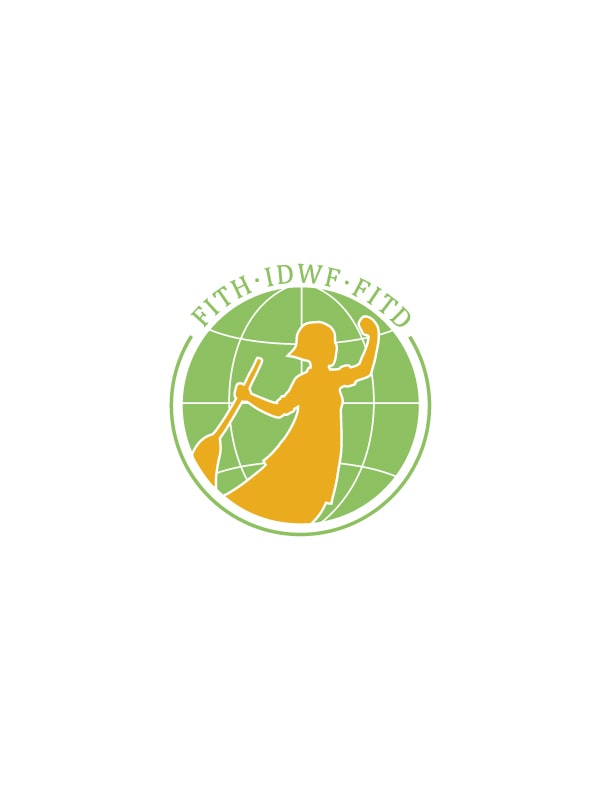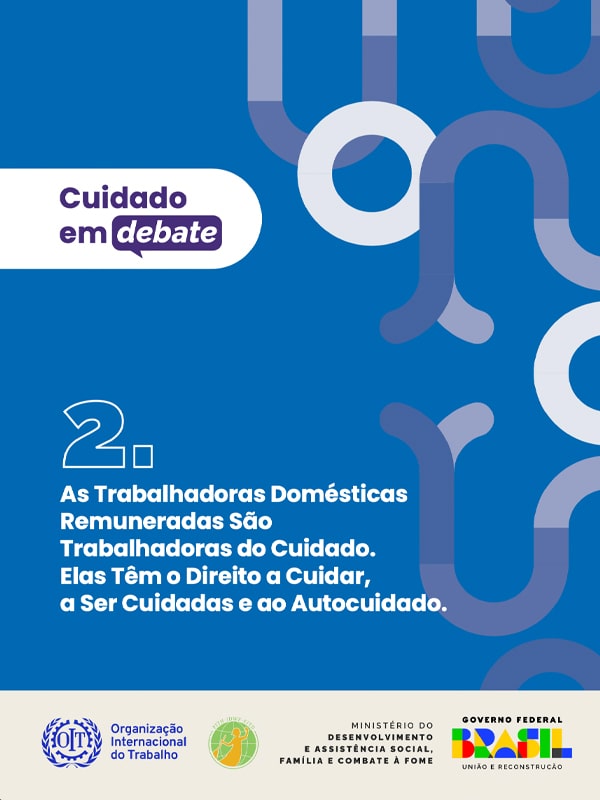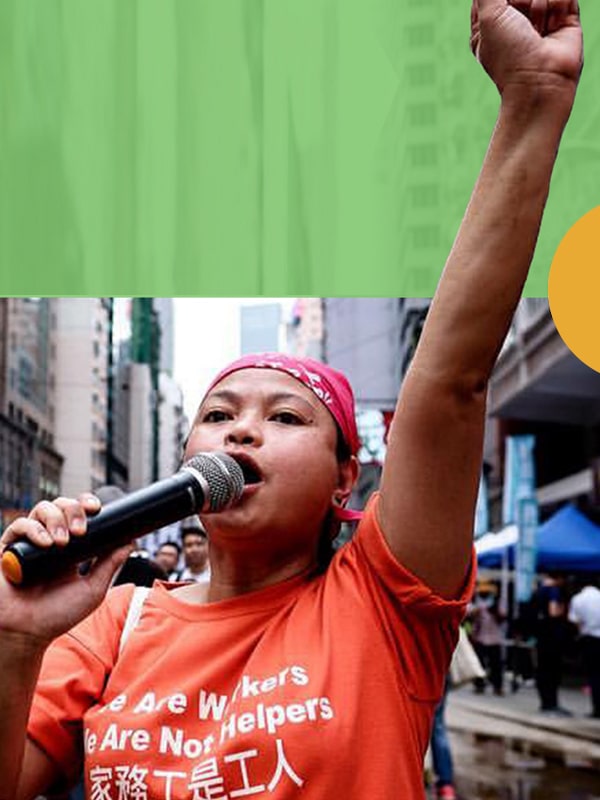Domestic Workers Confront Violence at Work
Hard hit by the pandemic, domestic workers suffered devastating job loss, displacement from homes, and exposure to serious health risks on the job.
Two years after the COVID-19 pandemic first brought the world to a halt, domestic workers are at the frontlines but their contributions often go unseen. Hard hit by the pandemic, these essential workers suffered devastating job loss, displacement from homes, exposure to serious health risks on the job, and a lack of social and legal protections. Many were forced to work more hours, faced dramatic reductions in pay, were subjected to violence and abuse by employers, and were forced to work through COVID-19 exposure or infection. Through the hardships, domestic workers exhibited incredible resolve and resilience; keeping households running and allowing others to continue working throughout pandemic lockdowns by taking on more responsibilities in employers’ homes.
The precarious reality spilled over from workers’ places of work to their own families. Often, the primary breadwinners faced reductions in wages, shifts in living accommodations, and, in some cases, changes in their legal work status that had serious implications. The income of domestic workers significantly dropped and affected how they could support their families, how often they were able to see them, and how to navigate the health and social impacts of COVID-19 within their households.
With this in mind, on International Women’s Day, LabourStart and IDWF hosted a joint webinar to highlight the experiences and amplify the voices of four powerful unionists who spotlighted issues of sexual and gender-based violence and harassment in the workplace, as well as efforts to support and encourage country ratification of ILO Convention 190. The convention was adopted on June 21, 2019, and could not be more relevant to the lives of domestic workers who often face abuse in the shadows and in silence. This International Women’s Day, we heard from women who said, “Silent No More.” Their voices were truly inspiring and, most importantly, heard.
Download
Download for print

